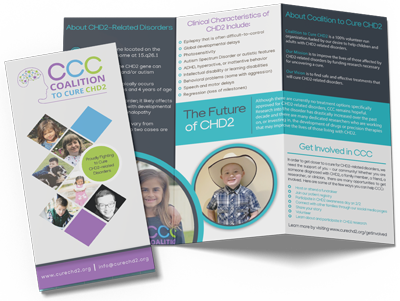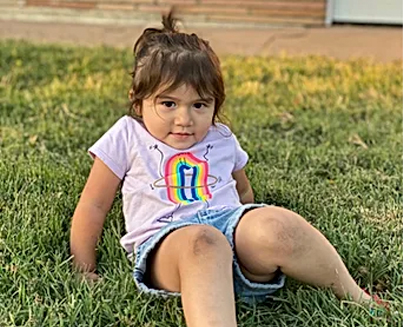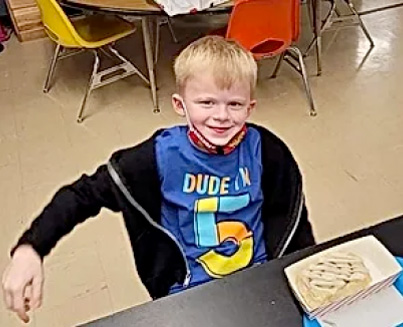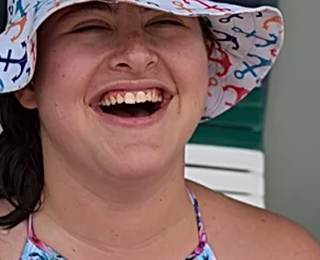Kate

Kate was born in 1979 in what was then Rhodesia and is now Zimbabwe. She was born at my parents’ house as I had a horror of hospitals, having quite recently given birth to an anencephalic baby that died at birth in one. Kate’s birth was normal. The cat was discovered under the bed after it was all over, and my father came in to compare the size of the fish he had caught that afternoon with the size of his new granddaughter.
From early on, I noticed that Kate cried a lot more than her sister, Tabitha had, and she didn’t want to sleep in her own room but then, I thought, a lot of babies are like that. Her sister hit all her milestones ahead of the average time and could speak in sentences at age one. Kate could not form a sentence even by the time she was four, but I thought she may have just been normal and her sister above average. I was very young and had very few friends’ babies to compare her to. We lived on a remote farm away from medical advice and even my parents.
When Kate was four, we moved to South Africa and for the first time, I took her to a speech therapist. Her speech improved but only marginally. I was a single parent by then and had a lot on my plate! Both my parents stayed in Zimbabwe and so I was on my own. My brother and sister, to this day, have never taken the slightest interest in Kate. They cut us out of their lives and my close friends have become family in the most meaningful way.
Kate went to a private school in Durban, but she fought it all the way; refusing to sit down, open her suitcase or take out her pencils. She stamped her tiny feet, blew raspberries at the teacher and screamed her defiance. I thought that was what it was – simple defiance – and put it down to her personality. Throughout this time, I noticed that she rolled her eyes and flickered them strangely but had no idea that this was a symptom of anything other than a harmless sensitivity to light. Her eyes are quite a pale blue.
At eight years old, I had an assessment done and found Kate had a learning disability which was called a mental handicap back then. I got her into a class for children with special needs while her sister went into an ‘opportunity’ class for very bright children. I remember a sports day at Kate’s school where the children all helped each other to make it to the finish line. They were all winners. I learnt something that day.
Kate was difficult! She simply refused to get dressed, go to bed, or obey any instructions if she didn’t want to. She was very defensive. Her famous saying when you asked her what she was doing was, ‘NOT ANY NUFFIN’, spoken in a very loud and adamant voice. Autism was not a word I ever heard until many years later. I was accused of being a bad and neglectful parent because I worked and was single. I was seldom home baking cookies. Kate was written off as badly disciplined and naughty.
When Kate was 13, she had her first seizure and from then on things became very difficult indeed. Looking back now, I know it was a full tonic-clonic seizure but not one doctor mentioned epilepsy to me, so I had no idea what was going on. Finally, I got that diagnosis and was able to read up on it in the library. By the age of 15 Kate was having 6 or 7 fits in a night and had to go to hospital for two weeks at a time and then come home for two weeks until the next bout. There was no written guidance that I could find on how to deal with epilepsy, and it became a matter of learning on the job.
In hospital after a seizure, she was over-dosed on Epilim and Epinuton and became allergic to them. She became psychotic at one point and the doctors told me it was caused by sexual abuse. They examined her without my permission and tried to write her psychosis off to that. Quietly a kindly nurse told me about the overdose and showed me her charts. She told me the medicine could cause the psychosis. Kate was never sexually abused. She was never left in a situation where that was even possible.
I employed a nurse to stay with Kate after I went to the hospital one day to find her strapped to her bed because she wanted to walk. My instructions to the nurse were simply to follow her and let her walk if that was what she wanted. Kate didn’t recognise me by then and was ‘seeing’ blood everywhere and plucking mindlessly at the sheets. I appointed a psychiatrist who put her on psychiatric drugs after diagnosing that her psychosis was caused by chemicals and not physical abuse.
The psychosis slowly subsided and Kate came back from wherever she had been. Photographs of her at his point show her pale, thin and drugged up to the eyeballs. Her neurologist accused me of Munchausen by Proxy syndrome which means a person who deliberately makes their own child sick for attention. She did not believe that Kate had seizures! I rapidly changed neurologists but not before this callous brute had told me that my child would probably die very young if she had as many seizures as I said she had.
‘Friends’ told me that this was all caused by me leaving her father and getting divorced. Someone else said it was demon possession. The list of possible things that I had done wrong was inexhaustible as was the list of possible remedies that I felt guilty about ignoring. One child psychologist blamed Kate’s sister! So many people said, ‘She will be fine. It will be as if a window suddenly opens, and everything will be ok. She’ll grow out of it.” I know they meant well but the sooner I accepted that Kate was disabled and seriously ill, the sooner I managed to deal with the reality of it all. I stopped listening to the voices.
It was about this time that one of her doctors told me that Kate had to have a hysterectomy as her female hormones were causing the seizures. One of the saddest experiences of my life was agreeing to that. It was so final, and I think all hope died that Kate would ever have a normal life like her sister. It was bleak and stark, and the only comfort came from knowing that Kate would not have to deal with periods or unwanted pregnancy. The grief is with me even now – and the gratitude. Kate could never have had a baby, but I don’t think any mother wants to take away her daughter’s right to have a child. Tough decisions had to be made.
At this time, I spent many long, lonely nights sitting by Kate’s bed in the hospital after a round of seizures before dragging myself off to work in the morning. I had my own company which meant that I could at least, be absent from work if I had to. At home I would lie in my bed on full alert, listening for the noises that indicated a seizure. We had no bed alarms then. One night Kate kicked me in the head, punched me and dug her nails into me. I knew she was not herself, but under the circumstances I decided I had to get help before I cracked, and I found a nurse to help. We learnt to administer rectal Valium to prevent her going into status – a practice the neurologist had called ‘humiliating and undignified’ for her. My dear housekeeper Winnie watched over Kate while I went to work and took care of me when I came home. My life wouldn’t have been possible without Winnie.
The last straw came when Kate was in hospital after a seizure. I visited her and she was sitting up, staring blankly, drooling, and singing, “la, la, la”, while trying to clap her hands. Her hands were missing each other. I asked the nurse to call the psychiatrist before she slipped into full psychosis and then trusting that it was being done, I had a brief nap in the armchair at her bedside. When I woke up the nurse told me that Kate’s behaviour was normal for a person with learning disabilities and so she had not called the psychiatrist. I called her a stupid woman and demanded a telephone. She refused to let me use one and I must admit that I used some force to obtain the telephone. I called the psychiatrist who rushed over and administered a medication that put Kate into a deep sleep, narrowly preventing the dreaded psychosis. I stood over the bed and cried my heart out. I knew this could not carry on for everybody’s sake, but I didn’t know what to do. It was tough decision time again.
At home, I flushed all Kate’s drugs down the toilet. I started her on a detoxifying diet with plenty of water. By then she couldn’t feed herself and was wearing adult diapers. Gradually she came back from whichever hell she had been in and I swore never to allow drugs again. She was vacant-eyed and silent. The defiant little girl was gone and had been replaced by a wan creature who stared out of the window for hours on end. I didn’t know when the next seizure would come or if the next seizure would kill her. Sometimes she turned blue and bit her tongue until blood poured down her chin. Sometimes she grunted quietly to herself and swayed her head from side to side, but very, very slowly she came back to herself again.
Her new neurologist phoned one day and begged me to allow her to try a new drug called Lamotrigine. Reluctantly I agreed and the seizures stopped! Even though they stopped I was forever robbed of peaceful sleep and to this day I can’t achieve deep sleep unless I’m away from Kate.
Our little family bears the scars of a terrifying illness that has dominated the lives of all three of us. Tabitha was at boarding school by then; she wanted to go because her sister was just too much for her and I wanted her to go because I couldn’t cope with Tabitha’s normal teenage shenanigans. It was nothing extreme, but I didn’t want to take risks with her safety while I had so few resources, emotionally and physically, to deal with a truculent and rebellious teenager. Tabitha didn’t get half of the attention she deserved because Kate was always sick and in need of help. Tabitha had to be a little mother and grew tired of it very quickly. Boarding school seemed the best solution.
In 1998 I took the decision to come back to England. There was no future for Kate in Africa and here she receives education, medical care, housing, and many other benefits. I knew I had to start building a long-term future for her. I wanted to make sure I could safely fall under a bus and know she was provided for. The kindness of strangers here overwhelmed me.
After a few false starts with Social Services in charge, where she was abused by a person with Asperger’s syndrome and some other unfortunate situations, I realized I had to do this myself in order to have control over her future and to give her as much control as I could.
At the age of 28 Kate started having seizures again; despite the Lamotrigine. Neurologists on the NHS seemed unable to get it back under control. After a particularly bad seizure, Kate’s shoulder dislocated and that became a feature of future seizures, requiring morphine and hospital visits. Once, when I was away on business, her carer found her at home, dazed and covered in bruises. She had no idea what had happened to her. We think she had a seizure, staggered around looking for a bucket to be sick in and fell into the coffee table. She started sleep walking and I had to find special locks for the doors. She broke her ankle during an ‘absence’ when she fell off a log. Her arm was often in a sling due to the dislocation. I had a recurring nightmare about holding a baby that fell to pieces in my hands. Desperately, I’d try to hold all the pieces together or pick them up and put them back, but nothing worked. Three o’ clock in the morning despair became a real thing in my life. I knew I had to get far more care for her than the 14 hours a week Social Services thought was adequate.
The Turning Point
By now, the internet was a thing and I Googled ‘best epilepsy specialist in London’. Professor Mathew Walker, Professor of Neurology, Clinical and Experimental Epilepsy at University College London came to the top of the list. I made an appointment to see him privately. He watched my videos of Kate’s seizures; he asked careful questions and finally wrote me a letter that changed everything. Apart from adding drugs that have not controlled, but have reduced the number of seizures, he gave me an understanding of what was causing them, what was risky and how to deal with them. He explained Sudden Unexpected Death in Epilepsy, SUDEP and that Kate was a candidate for it as she had stopped breathing on occasion. His letter enabled me to access night-time care for her, which meant I could safely leave her sometimes. Very kindly, he added Kate to his NHS list so that she could get his care for free in future.
Communal living was not an option for Kate. Her autism made it difficult for her to get along with people. She needed to be in control of her own front door so that she could choose who to allow into her life. After the episode with the man with Asperger’s I fully understood that a person with a learning difficulty can never be around a person with a personality disorder.
I sold my property, and I bought a house I could split into two flats – one for Kate above and another for her carer below. I set up a company and employed someone full time to manage the place and to take care of Kate using her benefit money. I fought constantly to make sure she received all the benefits she deserved and that she qualified and was assessed for everything she might need in the future. We have a trust fund, life insurance, a will, and a Book of Kate where all her needs are explained. My grandson has promised he will take care of her money and Tabitha would always oversee everything for me. Our main employed and full-time carer, Rosie, knows Kate very well now and can hand over to another person if she must. There is a job description and a sustainable plan.
Finally, with a bit of life still left in me to live, I can venture out across the road and not think too much about the bus! If this sounds as if I have not had a happy and full life, it is not true. I am a very happy part of my little family made up of my daughters, my son-in-law, and my grandson. I have wonderful friends all over the world and Kate has brought me great joy and good company. She makes me laugh every day. She understands what it’s like to feel sick and she is the one who brings me tea and sympathy if I don’t feel well. I have had time for myself and been on great adventures. I always tried to keep something for myself so as not to resent my children’s claims on my time and energy.
Now, Kate can go out on her own in safe little England, within limits. She learned to travel on public transport. Carers have been recruited and trained and we have formed a family around Kate that keeps her safe and that she loves. Her autism demands routine and this she has here. In her life she has her carers, her teachers, her friends, her cleaner, our neighbour and his dog, the gardener and, of course, family.
Kate is the only member of our family that can play the piano, albeit haltingly. She reads the music and plays with two hands! I could not be prouder. She goes to the pub every Thursday to meet her friends and she goes to college by herself. She can do simple shopping. She can use the internet and her iphone and she’s the one I call when the TV goes wrong. There are some things that she just gets! She loves cleaning and tidying and keeps her home spotless. She knits very long scarves and sells them! If I have any sadness now it is that Kate’s father chose not to contact Kate or have anything to do with her. She is such a blessing, and she would like to have a father. She bears no grudges and is completely innocent, but he made his mind up years ago and does not respond to any attempts to contact him. I sometimes think that his veins run with pure ice.
Recently, I looked at Kate and thought, she is the happiest person I know. She asks so little and expects even less. Small things make her happy. She has found acceptance in a peer group where she can talk to others like herself. She has found her tribe. She is part of a gang. She is engaged in having a very long and happy childhood and making up for the abject misery of her teenage years. She has everything she needs, and we have gone a long way towards securing her future.
The last episode of this drama is the one where Professor Walker asked me if Kate could take part in a genetic study. This was in 2019. Her blood was taken in the hospital where she has her usual check-ups and I put it out of my mind until I received a phone call in late 2020.
Until that call when Kate was 41 years old, I had never had a proper diagnosis for her illness and disability. “CHD2 mutation,” the voice said. I learnt that Kate was one of only 205 people in the world diagnosed with this gene deletion. She fitted the profile almost exactly.
When I put the phone down, I wept. After all these years of worry, guilt, fear, and ignorance, I finally knew that I had not caused her problems at all. I had been right to bring her to England and right to trust Professor Walker and his colleagues.
Since then, I have joined a Facebook support group and spoken to other parents like myself. The relief that comes from finally knowing what happened, why and that I am not alone and nor is Kate, is hard to comprehend! Dare I say that a little spring of hope has opened up? There is talk of a cure. I am not even sure if I can allow myself to hope but the little spark is there now, and I can’t deny that I hope.
If Kate’s story can give any hope to others, then I am glad to have been able to write it in all its raw pain. I still believe that people have a lot to learn from Kate as she talks to the squirrels in the garden, plays with the dog from next door and with her doll’s house and shares her love of life with us all.






.webp)
.webp)
CHD2 Heroes
Cora
It took a little longer for us to figure out that something was not right. How could we have.. known?
Keep readingKolman
His journey starts all the back in January of 2017. When Kolman was 14 months old he had his first seizure. It was one of the scariest days of my life.
Keep readingSophia
I’ll never forget the night I held her for what seemed like an eternity, while she was ..per..encing petit seizure clusters. It wasn’t the first time, but it was the worst we had
Keep readingCaleb
I remember experiencing what felt like a shiver shake in the tummy, the type of shake that.. someone would have when they feel a chill.
Keep readingFinlay
Whenever he was awake he would be dosing off. I now realize that he was having seizures.. but his eyes would be rolling into his head.
Keep readingRobert
Last year, I wrote about my admission into a very exclusive, special-invitation-only parent group that will define the rest of my life.
Keep readingLuca
When the Coalition to Cure CHD2 was formed, I wanted to help but was not sure how. I would not be any good at fundraising or technical support.
Keep readingColin
Colin was born in April 2015 at 29.5 weeks, 10.5 weeks early. He is currently 5 years old.
Keep readingEmma
Emma is a unique yet important member of the CHD2 community because of the discovery of her ultra-rare genetic problem that is quite different from the typical case of CHD2
Keep readingMcKenna
Having triplets plus one in one year changed my life in more ways than I ever thought possible, but it had been a long-time dream of mine and I was up for the challenge
Keep readingJanine
The journey of our daughter living with CHD2 started back in 2007 when she was 6 years old and seeing her eyes fluttering non-stop for minutes at a time, multiple times a day
Keep readingSavannah
When Savannah was approximately 6 months old, we noticed she wasn’t meeting her milestones and had a twitch/tic like tendency.
Keep readingJulian
The CHD2 Support & Research Facebook Group was one of the most meaningful groups I joined in 2019
Keep readingAiden
Aiden, and his twin brother Logan, was born in the US in 2005. They were much wanted IVF babies and were a blessing (and a handful) from day one
Keep readingKate
She was born at my parents’ house as I had a horror of hospitals, having quite recently given birth to an anencephalic baby that died at birth in one
Keep readingLucas
When I was pregnant with Lucas, things were great...until his 20 week anatomy ultrasound. The tech noticed his kidneys were a little large.
Keep readingAngel
I could not have chosen a better name for my son. An angel from the day he was born, who came to teach us lessons of life and love to his parents and siblings, to give us new ways of understanding and facing life
Keep readingSam
I was born on February 17, 2010 and I am super excited for my birthday! I remember when I was a baby, 15 months old, when I started having quick arm movements that I could not control.
Keep reading


















